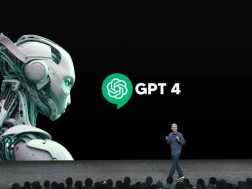Projects funded under the EU’s ongoing Skills4Jobs programme will assist thousands of Georgians in finding jobs by enhancing high quality vocational education, improving lifelong learning opportunities and supporting entrepreneurship.
Wednesday, 9 December 2020, Tbilisi: At a special event held online under the auspices of Skills Week Georgia, the nine grant projects, funded by the EU’s second phase of the Skills4Jobs programme in Georgia, were introduced. These grants have been allocated to private and public sector and civil society organisations to further enhance employment opportunities, particularly in the regions.
The nine projects, with a total EU contribution of EUR 7 million (approx. GEL 27 million), will focus on ensuring that relevant skills matching services and education opportunities in vocational education, training and entrepreneurship are available throughout Georgia, particularly for youth, women and vulnerable populations. The Skills4Jobs overall programme has three main targets:
Wednesday, 9 December 2020, Tbilisi: At a special event held online under the auspices of Skills Week Georgia, the nine grant projects, funded by the EU’s second phase of the Skills4Jobs programme in Georgia, were introduced. These grants have been allocated to private and public sector and civil society organisations to further enhance employment opportunities, particularly in the regions.
The nine projects, with a total EU contribution of EUR 7 million (approx. GEL 27 million), will focus on ensuring that relevant skills matching services and education opportunities in vocational education, training and entrepreneurship are available throughout Georgia, particularly for youth, women and vulnerable populations. The Skills4Jobs overall programme has three main targets:
"We are happy to launch the new grant projects as part of the second phase of the EU’s Skills4Jobs 5-year programme in Georgia. In the context of COVID-19 pandemic, it is more important than ever to support Georgia in its efforts to improve professional skills, enhance entrepreneurship and adapt the labour and employment strategies to the current needs. With the start of these new projects we contribute directly to the improvement of employability of women, men, youth and vulnerable people in Tbilisi and regions of Georgia.”, stated Catalin Gherman, Deputy Head of Cooperation, Delegation of the European Union to Georgia.
“At this time when coronavirus is testing Georgia’s VET system to its limits, and while we are striving to introduce new and innovative approaches in VET governance and practices and increase the attractiveness of vocational education and qualifications, we are being strongly supported as always by the EU, our longest-standing partner in VET. Europe is a source of inspiration and best practice examples in VET, and the EU’s financial and technical support has been invaluable in helping us to modernize our system in line with international standards”, stated Tamar Kitiashvili, Deputy Minister of Education, Science, Culture and Sports of Georgia.
The Skills Week Georgia, an online four-day conference, organized by the Ministry of Education, Science, Culture and Sports of Georgia with the support of the EU’s Skills4Jobs Technical Assistance Project, offers a platform to discuss new challenges and solutions for vocational education in the current reality. The conference was opened by Mikheil Chkhenkeli - Minister of Education, Science, Culture and Sport, Sigrid Brettel - Head of Cooperation of the Delegation of the European Union to Georgia, His Excellency Hubert Knirsch - Ambassador of Germany and Ekaterine Mikabadze - Deputy Minister of Economy and Sustainable Development.
Phase 2 of the EU’s Skills4Jobsprogramme was launched in 2018 to improve the employability of women, men, young people and vulnerable people in Tbilisi and regions of Georgia. The programme is implemented through a range of different measures. The total budget of the programme is EUR 48,85 million (approx. GEL 190 million) and includes:
“At this time when coronavirus is testing Georgia’s VET system to its limits, and while we are striving to introduce new and innovative approaches in VET governance and practices and increase the attractiveness of vocational education and qualifications, we are being strongly supported as always by the EU, our longest-standing partner in VET. Europe is a source of inspiration and best practice examples in VET, and the EU’s financial and technical support has been invaluable in helping us to modernize our system in line with international standards”, stated Tamar Kitiashvili, Deputy Minister of Education, Science, Culture and Sports of Georgia.
The Skills Week Georgia, an online four-day conference, organized by the Ministry of Education, Science, Culture and Sports of Georgia with the support of the EU’s Skills4Jobs Technical Assistance Project, offers a platform to discuss new challenges and solutions for vocational education in the current reality. The conference was opened by Mikheil Chkhenkeli - Minister of Education, Science, Culture and Sport, Sigrid Brettel - Head of Cooperation of the Delegation of the European Union to Georgia, His Excellency Hubert Knirsch - Ambassador of Germany and Ekaterine Mikabadze - Deputy Minister of Economy and Sustainable Development.
Phase 2 of the EU’s Skills4Jobsprogramme was launched in 2018 to improve the employability of women, men, young people and vulnerable people in Tbilisi and regions of Georgia. The programme is implemented through a range of different measures. The total budget of the programme is EUR 48,85 million (approx. GEL 190 million) and includes:
-
a EUR 30 million budget support to the Government of Georgia for implementing sector reform,
-
two Twinning projects which bring the EU Member States’ civil servants to Georgia to help introduce reforms,
-
grant scheme component for EUR 7 million, and
-
technical assistance to support the relevant ministries. This component is assisting the Ministry of Education, Science, Culture and Sports, Ministry of Internally Displaced Persons from the Occupied Territories, Labour, Health and Social Affairs, Ministry of Economy and Sustainable Development, the Youth Agency and other public agencies in updating and improving their sector reform policies.














